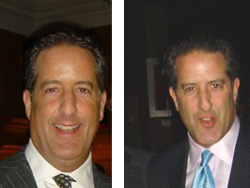Trending
Weak new development sales spur buyer guarantees
<i>New firm gets in the game with what some consider a marketing gimmick</i>
The depressed market for new condominium apartments is driving the creation of new incentives to facilitate the sale of distressed units.
To that end, developers have been trying mortgage payment guarantees and buyback guarantees, with little indication of success.
Toll Brothers, developer of Northside Piers in Williamsburg, offered a mortgage protection plan at the condo, but scrapped it last summer. And a little over a year ago, in December 2008, condo developer Rockrose Development, which has split into Rockrose and TF Cornerstone, said it would give 20 buyers at the View in Long Island City the right to sell their unit back in five years to the developer at the original sales price. It was not clear if that had any impact.
Now a new financial firm based in Manhattan is setting its sights on a national price protection program, but some industry experts are uncertain about its chances for success in New York City.
The company, Sirius Value Protection, headed by identical twins Andrew and Kenneth Herzberg, is talking with developers about its program that offers a qualified price guarantee to buyers, Andrew, a co-managing partner, told The Real Deal.
“The short-term fear that we are addressing is the guy who wants to buy a piece of real estate but he does not know if he is buying it for a million bucks, [whether] that is the bottom,” Herzberg said.
“I believe that we are giving the consumer ample reason to get back into this market.”
Under the plan, Sirius would take a 20 percent cut of the sales price, the majority of which will be placed in an investment trust managed by Credit Suisse, to guarantee that it will buy back the condo at the original sale price on the 10th anniversary of the purchase, if the buyer wants to sell.
The guarantee to buy it back is only good on the 10th anniversary, not before and not after, Herzberg said.
The company invests most of the premium, but takes a small cut as a management fee.
While the program is framed as a program to increase buyer confidence over the long term, there are short-term incentives as well. If a buyer leaves the program within six years, they are given a declining payment ranging from 3 to 10 percent of the purchase price, the company said.
Several industry experts who reviewed the Sirius marketing materials at the request of The Real Deal, gave the program mixed reviews.
One concern was that the 20 percent share of the sales price, taken by Sirius, has to be either paid by the developer or added as a higher cost to the buyer.
Eric Zipkowitz, a real estate partner with law firm Tarter Krinsky & Drogin, said he believed the developer would bear the brunt of the cost.
“It is a wonderful marketing gimmick,” he said. “I think there will be success from sponsors with lots of units to move and really under pressure to move them,” he said.
But he does not envision much demand in New York City because he expects most homebuyers, who typically own their units for five or six years, would balk at paying a premium for the long-term guarantee.
Yet foreign buyers, who tend to invest for the long haul, might be interested, he said.
Scott Avram, senior project manager with builder Toll Brothers City Living, said there was not much room for developers to cut their margins more.
“For some it might work, but with the market so tight it is probably pretty tough to give up 20 percent of their sale price,” he said.
Mid-sized developer, Andy Bassaly at the Flushing-based Tri-Bassco, said most developers would rather give the discount to the buyer directly.
Residential real estate appraiser Jonathan Miller, president and CEO of Miller Samuel, who himself is wading into the distressed condo market, expected to see additional incentives introduced to encourage sales.
“I think we will see more of this as Wall Street tries to find the next widget. I think we will see more complex financial products come out,” Miller said.





